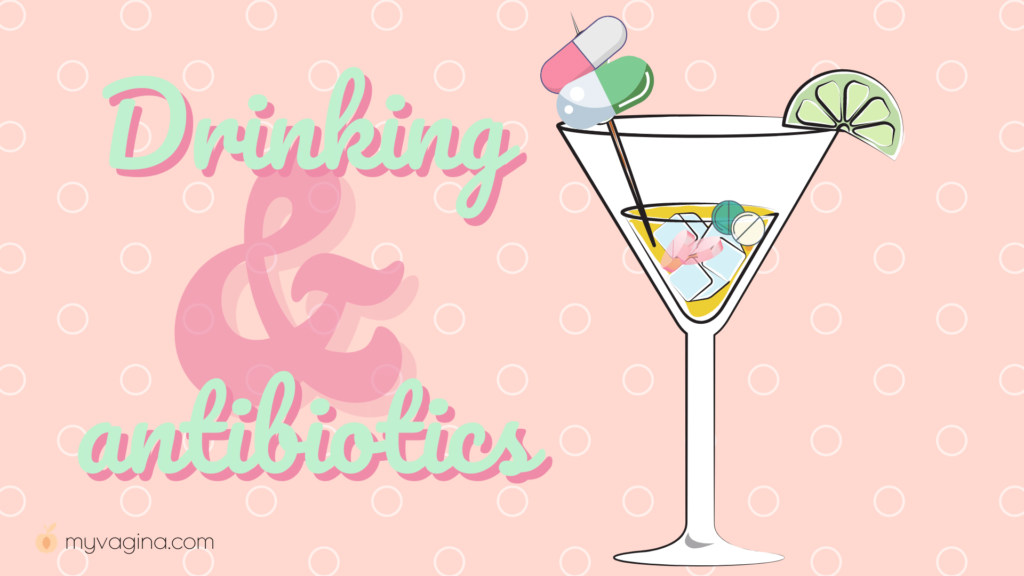Some antibiotics come with a no-drinking stamp because alcohol and antibiotics could interact in a dangerous way in your body. If your antibiotics specifically say Avoid Alcohol on the bottle, then you have been prescribed a specific type that is known to potentially interact with alcohol in your blood, possibly causing problems.
When antibiotics started being routinely prescribed for sexually transmitted infections, the story is that doctors told patients to avoid booze, because of the risk of reinfection, effectively undoing all the hard work. This was sort of true, since we engage in riskier behaviours when we drink, especially if we drink more.
The warning remains very true for some specific antibiotics, but this doesn’t mean if you do drink while on most antibiotics that you will definitely have a bad reaction – just that it’s more likely. You have been warned.
Remember, some cold and cough medicines contain alcohol.
The most common interaction between alcohol and antibiotics occurs with metronidazole (Flagyl), cefotetan (Cefotan) and tinidazole (Tindamax), which is used for many vaginal, intestine, skin and joint infections. The reaction is called a disulfiram-like reaction.
Negative reactions to antibiotics when mixed with alcohol can include:
- Nausea
- Vomiting
- Flushing skin
- Stomach cramps
- Headache
- Fast heartbeat
- Chest pain
- Problems breathing
- Drowsiness
- Sedation
- Dizziness
- Confusion
The reaction can occur while you are using the antibiotics and for up to 72 hours after you stop. If you are taking other medication like muscle relaxants, pain killers, anti-depressants or epilepsy medication, your risk profile changes so talk to your doctor about what to expect. The antibiotic will still work even if you drink, but it could make you feel bad. If you have mixed your drugs or vomited after taking your antibiotics, you may need extra advice.
Antibiotics that might interact with alcohol include:
- Sulfamethoxazole/trimethoprim (Bactrim DS, Septra DS) – faster heartbeat, redness/warmth under skin, tingly, nausea, vomiting
- Metronidazole (Flagyl, Flagyl ER) vaginal and oral – stomach cramps, nausea, vomiting, headaches, flushing, vaginal absorption
- Linezolid (Zyvok) – can dangerously increase blood pressure
- Tinidazole (Tindamax), Cefotetan (Cefotan) – stomach cramps, nausea, vomiting, headaches, flushing
- Rifampin (Rifadin),
- Pyrazinamide
- – may increase liver toxicity
- Isoniazid (Nydrazid) – may increase liver toxicity with daily drinking
- Cycloserine (Seromycin), Ethionamide (Trecator) – may increase risk of central nervous system toxicity, possible seizures/psychosis
- Voriconazole (Vfend) – may alter drug levels if liver metabolism is altered
- Ketoconazole (Nizoral) – May increase liver toxicity, stomach cramps, nausea, vomiting, headaches, flushing
- Thalidomide (Thalomid) – may cause additional sedative effect, drowsiness, confusion
For details on whether your antibiotics are on the at-risk list for use with alcohol, check the label.







